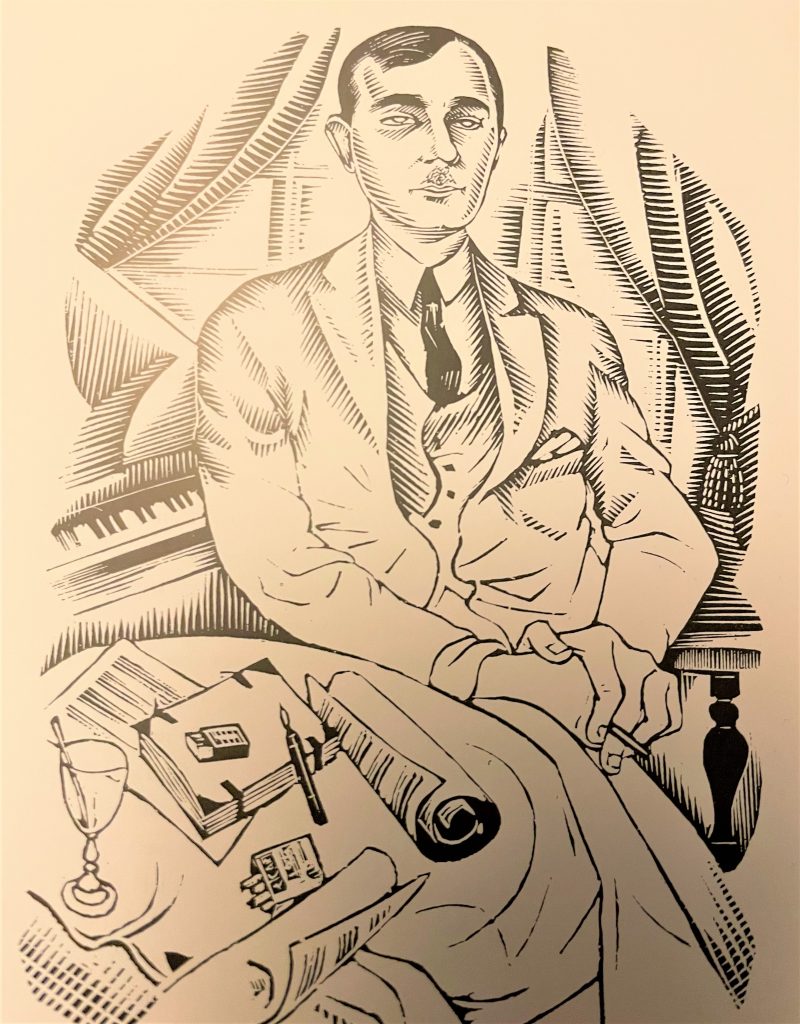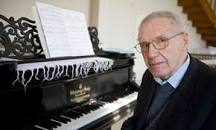
by Kevin T McEneaney
Over this weekend Dr. Leon Botstein with The Orchestra Now conducted a concert titled Before & After Soviet Communism. The Before was Karol Szymanski’s late Songs of The Infatuated Muezzin (1918). Sir Simon Rattle once proclaimed Szymanski “one of the greatest composers of this [20th] century.” Influenced by Chopin and Goral Highland music (which is played on two fiddles and employs bracing dissonance, lively syncopation, and meandering style), Szymanski was the precursor of the 20th century Polish Renaissance who paved the way for Władysław Żeleński, Grazinya Bacewicz, Tadeusz Szeligowski, and later Krzysztof Penderecki and Witold Lutoslawski (the latter two are favorites of mine).

Due to a lame leg, Szymanski (1882-1937) was spared from the horrors of World War I, and he became an internationally successful composer before the arrival of Communism. Like W.B. Yeats, he was a fan of Rabindranath Tagore. In this short piece of vocal music sung marvelously by mezzo-soprano Sun-Ly Pierce with overhead translation, a muezzin is obsessed with erotic imaginings of a certain lady at the first of five calls to worship and bathe, imagining the woman naked. As a musical celebration of the erotic, I don’t think this piece is ever performed publicly in the Islamic world if one wishes to keep one’s head on one’s shoulder; having a recording of the work might get one a prison sentence in some countries. The song is in six short parts and stops short of the day of religious observance (which, I presume would be blasphemy). Szymanski had a penchant for dramatizing erotic motifs and here was a frolicsome fantasy before the frigid Iron Curtain descended on Poland.

…conertante… by György Kurtag (1926-2019) explores the soundscape of instruments, including two large bass flutes, cimbalom, and unusual percussion instruments. Percussionist Petra Elek delivered a delightfully amusing talk to introduce the work. This novel work showcases instruments in a kind of concerto format. To listen to Kurtag one must be open to hearing sounds and rhythms one has never imagined, and one usually wants to hear it again, but, alas, the concert has finished, and one departs with astonishment and appreciation. The work opens with a sampling of instruments, letting one know of their talents, then proceeds gather dynamics with intensity. On stage were the two string players who premiered the work in Paris, violinist Hiromi Kikuchi and violist Ken Hakii, both of whom soloed with electric intensity. Mathew Overbay was terrific with percussion, Han-Yi Huang was super on bassoon, and Jillian Reed was lyrical on flute, while Colby Bond was mellow on clarinet.

Symphony No. 5 by Boris Tishchenko, a prolific student of Dmitri Shostakovitch, presented bold, biting ironies, contrasting the inanities of authoritarian pageantry with the simple private joys of rural landscape. The work opened with a long tuba prologue with the finesse of Joe Exley. Dynamic contrasts were either startling or oppressive as one might judge amid powerful orchestration that sounded insane and inane in order to hammer on the poisoned anvil of authoritarian mentality. This work would be shut down immediately if played in Russia today. The use of orchestral dynamics was original and at times frightening, yet in general I prefer more subtlety, especially in the use of irony. While this work was awesome, I would not have any interest in hearing it again, yet once one hears this raucous symphony, it leaves an unmistakably stamp-and-stomp on one’s memory, as it fills one’s mouth with disgust at authoritarianism.

And so, the title of the concert Before & After Soviet Communism lingers with subtle irony….